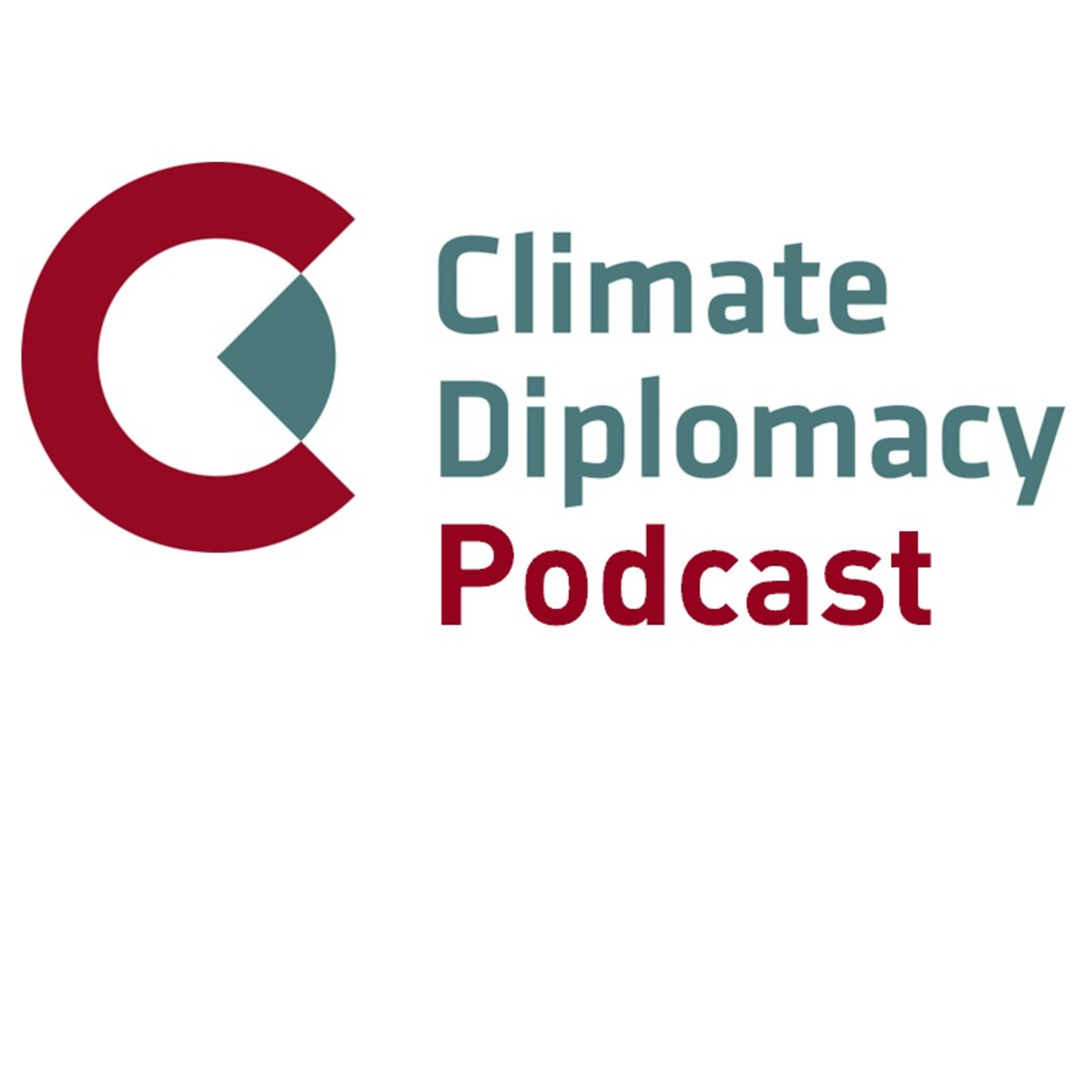Episodes
In this special episode, recorded live at the Berlin Climate and Security Conference 2021, we explore climate-related security risks and entry-points in three key regions: Southern Africa, the Arctic, and the Horn of Africa. We hear from the regional experts Ottilia Anna Maunganidze (Institute for Security Studies), Marisol Maddox (Wilson Center), and Sagal Abshir (The Clean Fight). They highlight what is unique about each region, and what unites them – particularly the need for...
Published 11/09/21
The European Parliament issued a resolution on climate diplomacy in 2018. Since then, the policy landscape has evolved rapidly with the development of the European Green Deal, as well as the pandemic and ongoing efforts for a green post-Covid recovery. In this episode, Dennis Tänzler and Daria Ivleva highlight findings of their recent report on EU climate diplomacy, identifying progress made and tasks for the Parliament going forward. Key topics to consider include trade policy and finance,...
Published 10/19/21
The Arctic is experiencing anthropogenic climate change at three times the global rate of change. Its sea ice minimum reached its second lowest level on record in 2020. Marisol Maddox, author of the CSEN risk brief on the Arctic, walks us through the critical climate-related breaking points the region is experiencing and why it matters for the whole world. She further elaborates on the geopolitical implications of these dynamics, also looking at opportunities.Read the risk brief here:...
Published 09/01/21
Climate-induced mobility is more than sudden displacement. It is also a consequence of slow-onset changes, structural shortcomings and governance failures. Luckily, the opportunities for addressing it and adapting to its impacts are just as diverse. Beatrice Mosello and Gareth Price, authors of the report “Rethinking mobility in the face of global changes”, give insights into climate-related mobility, focusing on Central Asia and Bangladesh.Download the CASCADES report here:...
Published 08/12/21
South Asia is one of the most climate-vulnerable regions in the world. Parts of the region are characterised by a high level of political instability and socio-economic backwardness. This convergence implies that climate change not only undermines human security, but could also heighten conflict risks. On the one hand, the region lacks the resources and capacities to cope with worsening first and second order impacts of climate change; on the other, climate change is increasingly interacting...
Published 07/20/21
This episode digs into the food insecurity-climate change nexus. It looks at how vulnerable agriculture is to a rapidly and erratically changing climate, but at the same time, how much it contributes to it. We discuss some of the narratives around food security and the environmental systems needed for food production. This episode is the first of two special editions around the UN Food Systems Summit, taking place 26 – 28 June 2021. The summit aims to awaken the world to the fact that we all...
Published 06/28/21
In this episode we speak about climate fragility risks in Mali together with Chitra Nagarajan, author of the climate fragility risk brief on Mali.
During the interview, we hear her insights on how climate change is projected to affect Mali and learn more about the five pathways trough which climate change impacts fragility in Mali. She also offers recommendations on how to address them. Moreover, as one of Chitra Nagarajan´s focus topics, this episode takes a closer look at gender dynamics...
Published 05/27/21
Published 05/04/21
Published 04/19/21
Published 03/19/21
Published 12/11/20
The world needs to undergo a deep, transformative change to achieve sustainability. Yet, progress on many of the 17 Sustainable Development Goals of the 2030 Agenda is lagging while the willingness to cooperate internationally often seems to be waning. Foreign policy must help bridge this gap, ensuring ambition and providing guidance. In this episode of the Climate Diplomacy Podcast, host Martin Wall discusses the role of foreign affairs in the global sustainability architecture with Daria...
Published 07/18/19
Right-wing populist parties are already part of the governments of seven EU member states and are expected to make up a quarter of MEPs after the European elections in May 2019. The dwindling trust of citizens in democratic institutions and in Europe, the re-sorting of party spectrums, the declining influence of traditional popular parties as well as the emergence of multi-party coalitions and minority governments will all make governance increasingly difficult. At the same time, we are...
Published 04/29/19
The Planetary Security Conference brings together experts, policy makers and politicians from around the world to discuss how best to tackle the security risks of climate change. The conference also reports on progress towards meeting the ambitions of The Hague Declaration which set out an action agenda for the community of practice on climate security. This year we spent some time interviewing some of the participants to get their insights into how climate change affects international and...
Published 04/05/19
With climate change increasingly being seen as a security issue, we ask what role the United Nations Security Council could and should play. To answer this question, we are joined on the Climate Diplomacy podcast by UN expert and Chatham House Associate Fellow Oli Brown. In this podcast, Oli explains some of the challenges that the UN Security Council has had in tackling climate change and outlines the prospects for action in the future.
Martin Wall is an Irish Research Council/European...
Published 02/27/19


